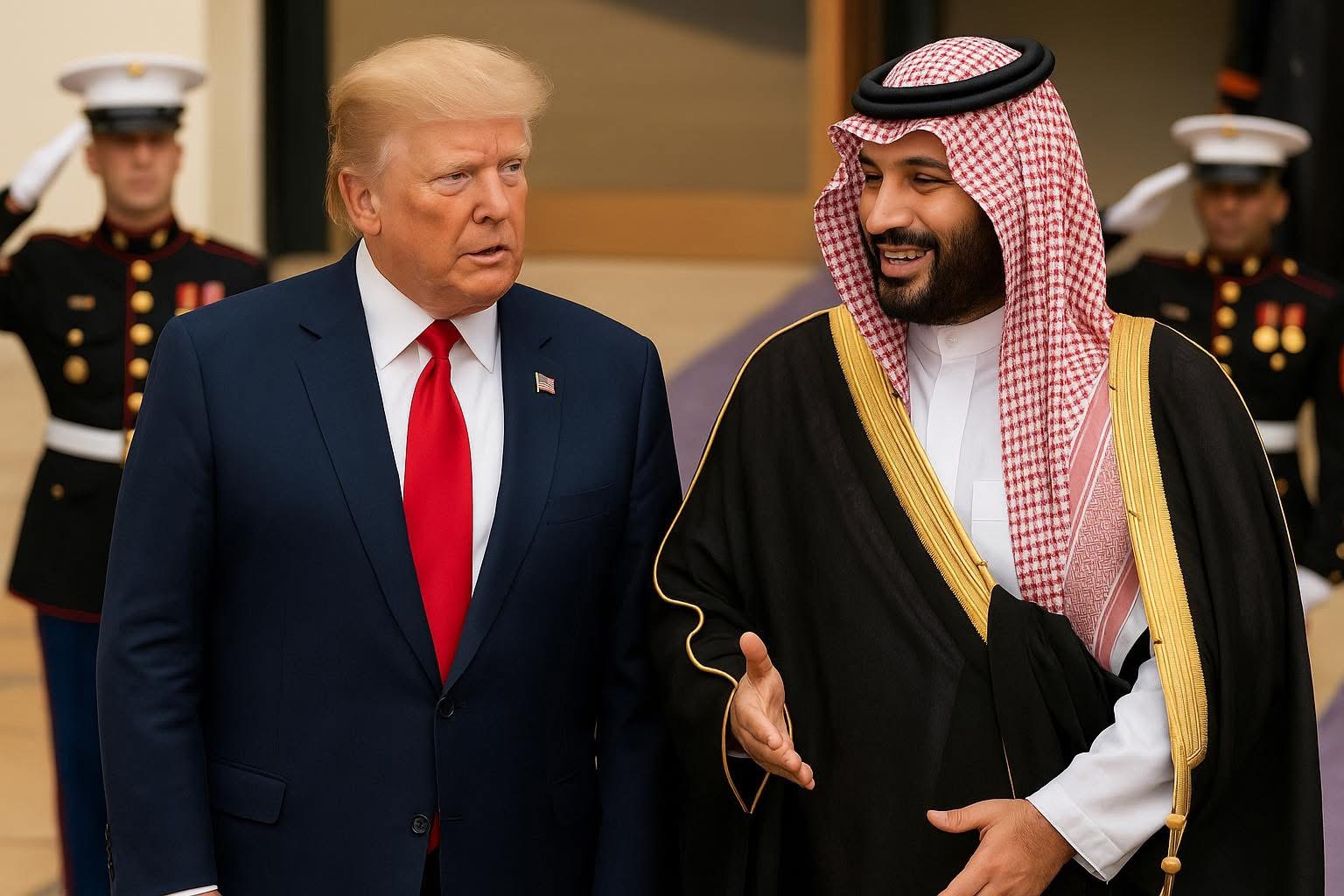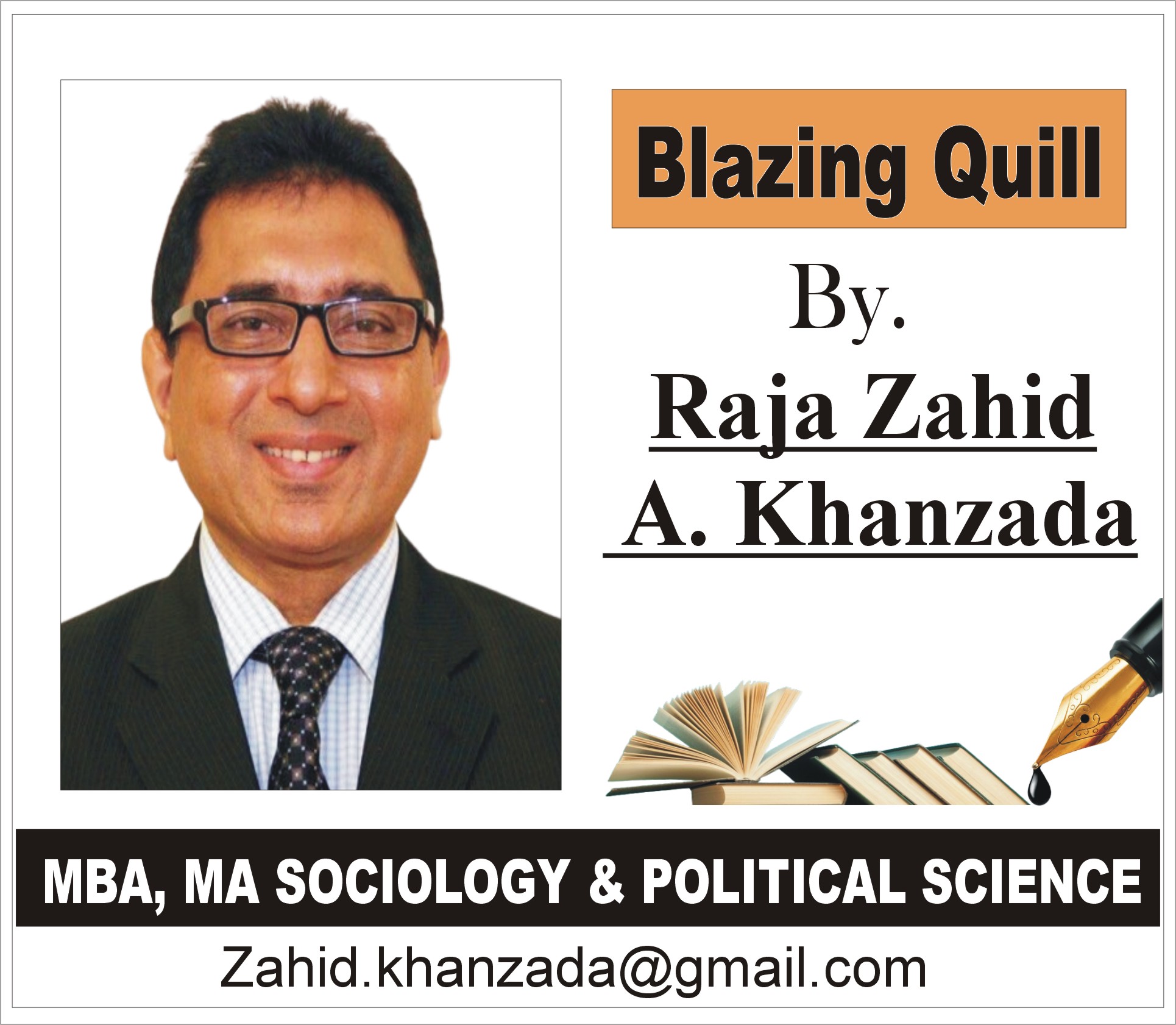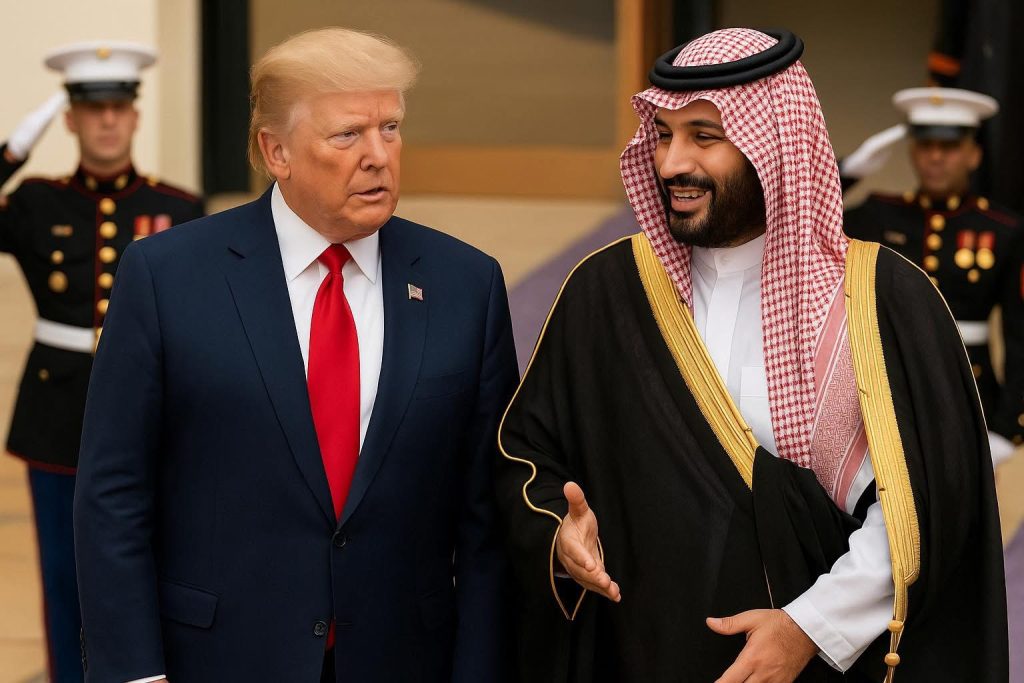Camels, Jets, Oil and the Muslim World’s Lost “No”
By Raja Zahid Akhtar Khanzada
When the final light flickered across the minarets of the Ottoman Caliphate, British cartographers in distant European capitals bent over their drafting tables, slicing an empire into fragments. Arabia, Syria, Iraq, Palestine—each pulled apart like veins torn from a living body. Nationalist slogans, secret agreements and whispers of revolt formed a tightening fence around Istanbul’s heart, slowly draining the authority that had anchored a vast Muslim world.
Stories about intrigue and violence inside the imperial harem made for popular folklore, but history tells a quieter truth. The collapse of the Caliphate was not the product of a single British colonel’s plot. It was brewed in the shadowed corridors of politics, the silent trenches of diplomacy, and the internal weaknesses that hollowed the empire from within.
When the Caliphate vanished, the ummah no longer stood under a few flags. It became a mosaic of hundreds of borders. Each state a separate narrative, each monarchy its own direction. Across the Muslim mind one question remained carved like stone: Where will leadership rise now? Who will light a lamp to reunite a fracturing caravan?
In this long fragmentation of centuries, history placed two names on its page.
King Faisal, rising from the golden sands of Riyadh.
Zulfikar Ali Bhutto, emerging from the wounds of the subcontinent.
When the 1973 Arab Israeli war ignited the Middle East, King Faisal demonstrated—perhaps more powerfully than any ruler of his era—that oil was not merely a substance beneath the earth. It could be the collective will of a humiliated world. As supplies tightened, Western economies trembled, and history witnessed how desert sand could, for a brief moment, harden into steel.
In Lahore the following year, Bhutto gathered the shattered bones of a defeated Pakistan and hosted the Islamic Summit under the shadow of Minar e Pakistan. It was the first moment since the end of the Caliphate in which the Muslim world felt, if only briefly, like a single body once more.
But every lamp casts a shadow.
In 1975, King Faisal was shot dead by his own nephew. The court record is clear, the death sentence is part of history. But behind the official narrative, the whispers endure. Some speak of a Western woman in the assassin’s life—sometimes cast as “a Jewish girl”—though credible historians remain silent on such claims. What is certain is that the voice which first gave the Muslim world the courage of economic self reliance was silenced in the very turbulence he helped reshape.
Thus the fall of the Caliphate, the birth of nation states, the weaponization of oil, the Lahore Summit, and King Faisal’s assassination form a single historical current—its bends and twists connected though separated in time.
A century rolled on.
Faces changed. Thrones changed. The language of power changed.

And now it is November 2025.
In the same White House where King Faisal’s decisions once unsettled global powers, Saudi Crown Prince Mohammed bin Salman is welcomed with a red carpet, military guard, cannon salute and a fighter jet flyover. A trillion dollar investment plan lies on the table—its architecture promising a new era of influence not built on oil embargoes but on capital, technology and data infrastructure.
Meanwhile the political landscape has shifted dramatically with the Abraham Accords, through which Israel—backed by Washington—has normalized ties with the UAE, Bahrain, Morocco, Sudan and now Kazakhstan.
Saudi Arabia today presents a new face under Vision 2030: concerts, football clubs, a rising film industry and megaprojects transforming the kingdom’s skyline.
Progress is impressive.
But around it coil invisible threads of geopolitical pressure.
It is within this altered political weather that the latest Washington chapter unfolds.
At a joint press briefing, President Donald Trump openly defended the crown prince in the killing of journalist Jamal Khashoggi—a defense at odds with American intelligence assessments pointing responsibility toward the prince. Trump dismissed a reporter’s question as “horrible, insulting and inappropriate,” adding, “Whether people liked him or not, things happen… and the prince knew nothing about it.”
On that table, politics, interest, morality and journalism stood face to face.
The American media called Trump’s remarks an attack on press freedom.
Then the conversation turned unexpectedly.
As Trump spoke about Khashoggi, the crown prince interrupted, steering the discussion toward the trauma of September 11. He said he felt “pain for the 9/11 families,” and claimed Osama bin Laden had “used Saudis to damage U.S.–Saudi relations.”
The question was about one thing.
The answer headed elsewhere.
Only later did the prince describe the killing as “a big mistake… a painful one,” adding that reforms were made. But the words held neither accountability nor moral clarity—only a carefully staged fog of regret.
On the platform X, formerly Twitter, the voice of Hanan El Atr Khashoggi, the widow of the slain journalist, rose above Washington protocol.
“They took everything from me,” she wrote. “I did not even receive my husband’s remains. There was no justice. No compensation.”
At that moment the strategies became clear.
Trump invoked Israel.
The crown prince invoked 9/11.
Both reminding the world that human grief defies religious and geographic borders.
The moment grew heavier when the crown prince announced he would raise Saudi investment in the United States from $600 billion to $1 trillion, alongside defense deals, F-35 jets and deeper phases of the Abraham Accords.
At the formal White House dinner that evening, Trump proudly declared Saudi Arabia a “major non NATO ally.” The hall erupted in applause for jet deals, nuclear energy agreements and billions in contracts.
But beneath this fanfare lay a chilling absence.
More than seventy thousand Palestinian deaths were never mentioned.
No Gaza.
No mothers’ cries.
No rubble.
No siege.
Trump repeated only one familiar line:
“Those bodies Hamas is returning…”
As if Palestinians were not human beings, but merely entries in a diplomatic ledger.
And Prince Mohammed bin Salman referred only once, softly, to a “two state solution,” moving quickly onward.
In that silence, it seemed as though 70,000 lives were buried beneath American protocol.
The discomfort deepened when Trump cracked jokes about Cristiano Ronaldo, read out the lavish dinner menu and described Saudi investment as “America’s good fortune.”
Politics may demand compromise.
Investment may be essential.
But silence over the graves of an entire people is something else.
In the crown prince’s formal speech later, there was again no clear stance for Palestine—only a vague, familiar line that “peace requires a two state solution.”
But for whom?
On what land?
For which wound?
No answer came.
And so the night of 2025 becomes one of history’s heaviest moments.
On one side, the face of “oil for respect” is replaced by “capital for partnership.”
On the other, the echo of King Faisal returns:
There was a time when oil was scarce but principles were abundant.
Today trillions exist, yet the courage to say “no” has nearly vanished.
Saudi Arabia edges gradually toward deeper strategic alignment, but history forces a painful question.
If power means wealth, the Muslim world stands richer today than ever before.
But if power means sovereignty, and the ability to say “no” before the world, then perhaps we have retreated far behind.
In 1973, a small group of Arab states said “no,” and the global economy shook.
Today, even with trillions, the ummah’s collective “no” is faint.
Pakistan too has splintered.
Bhutto once placed a broken nation at the center of the Muslim world.
Today’s Pakistan is caught in debt, politics and compromise.
Saudi Arabia itself has transformed.
The country where King Faisal once embodied simplicity, dignity and moral clarity…
On those same sands, the words of Sheikh Rashid bin Saeed Al Maktoum swirl like a desert wind:
“Progress matters only when future generations inherit responsibility, not just comfort.
If brilliance passes without character, decline lies hidden behind luxury.”
This is the history of the present.
A present shaped by yesterday’s decisions, the oil embargo and the Muslim world’s lost “no.”
And so the question returns:
Are we truly powerful today?
Or
have we merely replaced camels with jets,
simplicity with capital,
while the free spirit that once guided decisions has been left behind?
Power is not measured in bank accounts or skylines,
but in the moment a nation can stand before the world
and say “no” for the sake of what is right.
When leadership loses that word,
even a trillion dollars becomes a chain.
But if someone can reclaim that courage—
then perhaps
the oil well, the camel’s rein and the aircraft of the future
will again point in the same direction.




